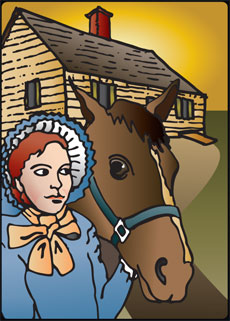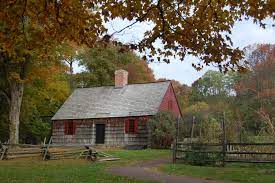Meet Your Revolutionary Neighbors
Temperance Wick
1758 – 1822
I was a farm girl and a witness to two of the harshest encampments of the war.
I was the youngest of five children in the Wick family, born in 1758. We had one of the largest farms in the area of Morristown, New Jersey. We had 1,400 acres with stands of oak and walnut timber, a large apple orchard, and fields of barley, oats and flax.
By the time of the War of Independence, I was the only child still living on the farm. In January 1777, following the victories at the Battles of Trenton and Princeton, the Continental Army encamped in our area. Major Joseph Bloomfield, who would later be the Governor of New Jersey, stayed with us for several months recovering from illness.
Three winters later, the army returned, and it turned out to be the coldest winter anyone could remember. The soldiers cut down several hundred acres of our wood to build huts and for firewood to keep warm. Major General Arthur St. Clair and two aides stayed in our house.
And then, the following winter, a group of soldiers from the Continental Army called the Pennsylvania Line became so upset by the lack of supplies that they mutinied and got ready to march to Princeton. Later stories say that I hid a horse in our house to prevent them from taking it, though as a farm girl who knows about manure and other things, I’m not sure I’d bring a horse into the house!
Eventually, the war was won and these hardships came to an end. At the age of 30, I married William Tuttle, an army soldier, and I lived until April 26, 1822.
Learn More




